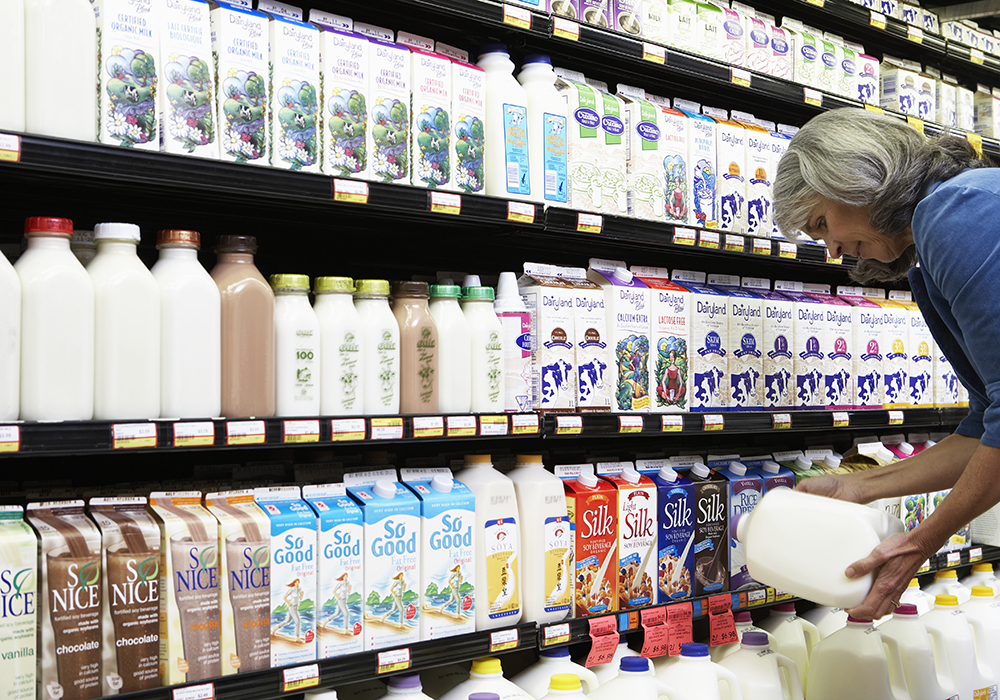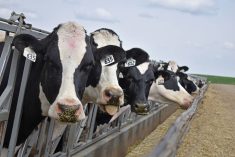Ottawa’s latest fiscal statement includes payments to producers for lost markets due to the North American free trade deal
Canada’s supply-managed producers are waiting for details after a signal from Ottawa that compensation for market access lost to the U.S. is coming.
The Nov. 3 fall economic statement included an allocation of $1.7 billion for “full and fair” compensation under the U.S.-Mexico-Canada Agreement.
The statement said only that details would be made public in coming weeks.
Financial documents attached to the statement allocated $1.2 billion in the 2022-23 fiscal year, followed by $145 million in each of the following three years, then $45 million, and finally $42 million in 2027-28, less $13 million previously provisioned.
Read Also

Huge Black Sea flax crop to provide stiff competition
Russia and Kazakhstan harvested huge flax crops and will be providing stiff competition in China and the EU.
Dairy Farmers of Canada issued a brief statement noting a broad financial envelope for compensation.
“We have had good discussions with the government, and through this engagement, we believe they have a good understanding of the impact of (USMCA) on our industry,” said President Pierre Lampron. “We remain optimistic that when the details of the compensation are announced they will be full and fair.”
The poultry sector said the statement addressed a long-standing commitment to the sector.
“It’s our expectation that the measures outlined will further bolster the existing Poultry and Egg On-Farm Investment Program, which offers support to farmers as they make ongoing improvements to their operations and enhance the sustainability of their farms,” said a news release on behalf of Egg Farmers of Canada, Chicken Farmers of Canada, Turkey Farmers of Canada and Canadian Hatching Egg Producers.
The organizations said this is the final compensation to be announced after successive trade agreements resulted in market losses.
They said there is still more work to be done.
“Canada’s 4,800 poultry and egg farmers expect the government to uphold its commitment to no additional access to our sectors in future trade agreements and bilateral arrangements,” they said.
According to a Canadian Dairy Commission market update, in August the 12-month import total was 15.4 million kilograms of butterfat, a 17 percent increase from the same time last year. The increase is due to the agreements.
The CDC said the first month of the dairy calendar showed strong butter and milk powder imports. Yogurt, ice cream and cheese enter on a calendar year basis and the CDC said cheese under the European agreement has entered steadily while cheese under the TransPacific agreement, and yogurt, ice cream and cheese under USMCA, are entering at slower than expected rates but are likely to pick up heading into the holiday season.
Last week the CDC announced a farmgate milk price increase of 2.2 percent, or 1.74 cents per litre effective Feb. 1, 2023. That’s on top of other increases this year and is based on the October annual review of milk prices and the national pricing formula that includes dairy farmers’ costs of production and the consumer price index.
The commission said in the last year the average annual consumer price index for dairy increased six percent, compared to 6.3 percent for all foods.
The fall economic statement included a number of other agriculture-related expenditures.
The federal agriculture department will get $14 million this year, $21 million next year and $7 million the year after for African swine fever prevention and preparedness efforts.
The Canadian Food Inspection Agency is expected to get $62 million over three years for post-pandemic operational needs. Finance officials said the funding is to address the backlog of inspector training and to develop the Digital Service Delivery Platform so that inspectors can file electronically. During the pandemic 563 inspectors were hired or changed roles but it’s not clear how many of these were in agricultural roles.
The agency is also getting $20 million over four years to regulate animal imports, which is related to pets, and $7 million over six years to implement the front-of-package labelling regulations.
The statement included $30 million in interest relief for agricultural producers this year and $35 million next year. This was announced in June and enabled the increase in the interest-free limit on the Advance Payments Program to $250,000.
Other expenditures of note include the cost to Environment and Climate Change Canada to administer carbon pollution pricing and the clean fuel regulations. The department will get $27 million, $36 million, $35 million, $34 million, $34 million and $33 million over the next six years.


















